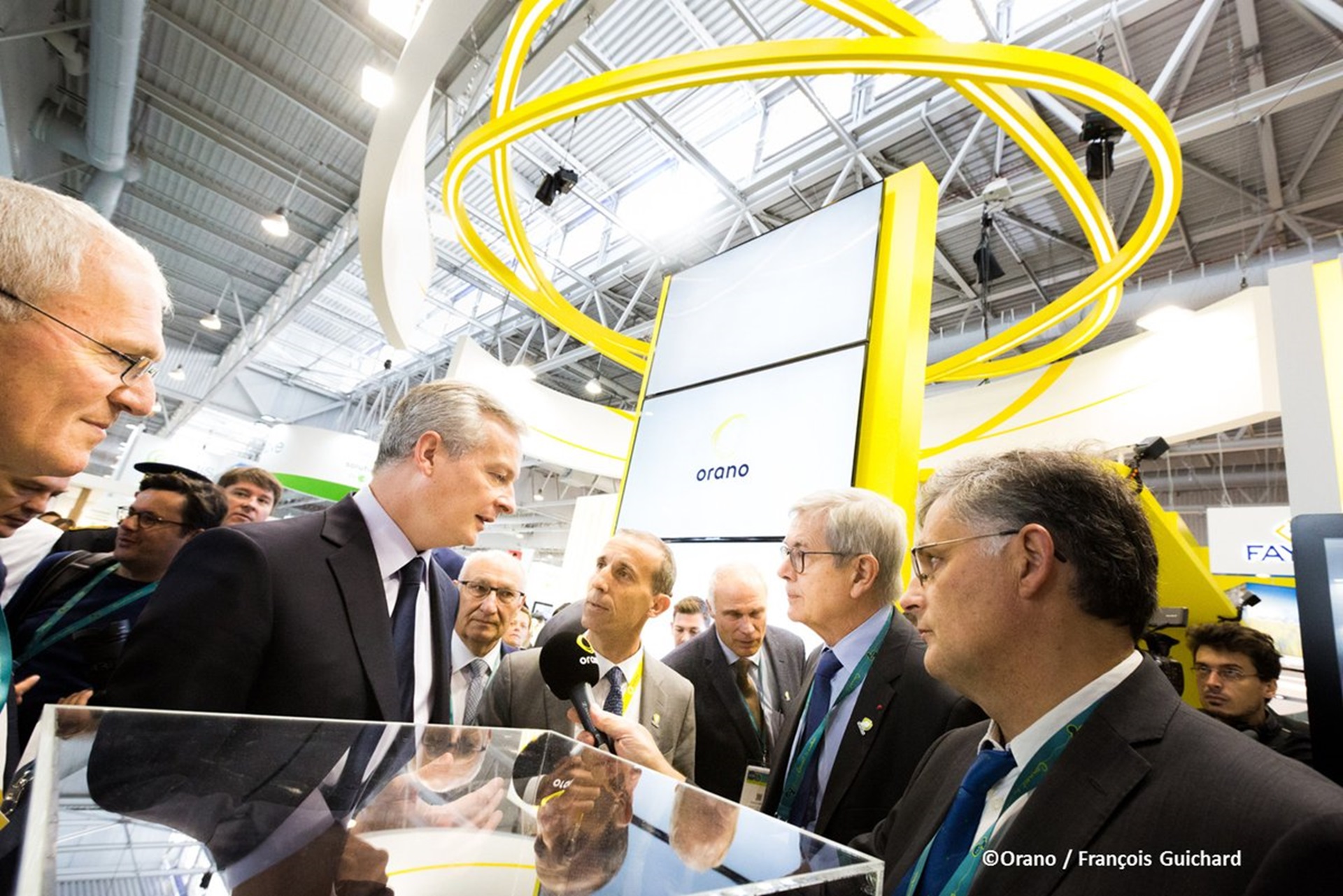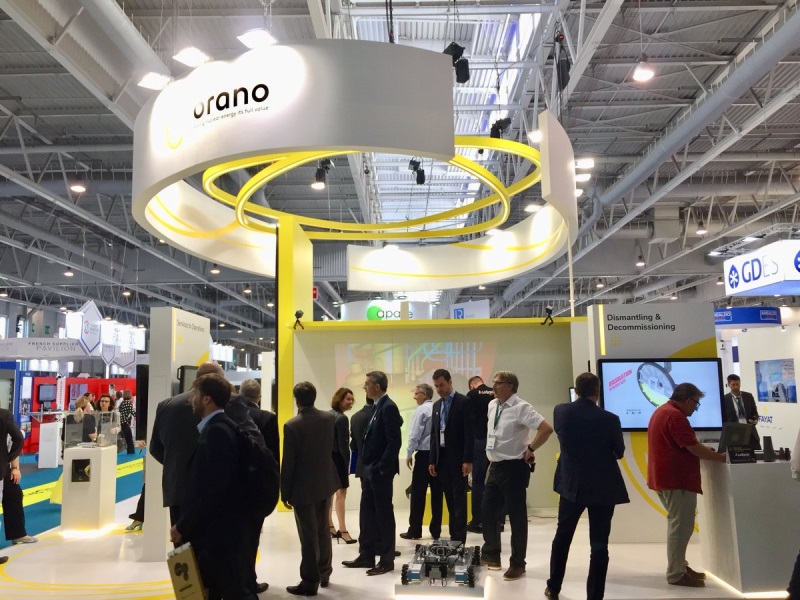
Orano at the WNE - Innovation on display

The World Nuclear Exhibition is a global showcase where some 20,000 highly qualified visitors are expected through June 28 at Paris Nord Villepinte. Industry players from around the world, parliament members, members of institutions, and government officials rub shoulders at the event. In every way, this is a must-do event for Orano, a recognized expert in every aspect of the nuclear fuel cycle. Its ambition is to demonstrate its innovation capacity by displaying the latest solutions specially designed for its customers.
For Philippe Knoche, its CEO, innovation is
“our legacy, as well as our future, in every activity, from mining to dismantling.”
“The other major reason for our presence at the WNE is to establish the Orano name (formerly AREVA) since it changed last January,” adds François Guiomard, WNE Project Manager at Orano. “Our historic businesses are well known among our partners—ore extraction, uranium conversion and enrichment, recycling used fuels, and waste management. However, some remain unaware of our expertise in terms of nuclear operations services, decommissioning nuclear plants, and innovative applications in certain niche activities of the nuclear industry or even the medical sector,” he adds.
Valuable tools for our customers
Innovation is the backbone of this stand, which is clad in Orano’s colors. On display: virtual reality and augmented reality, which help to improve the safety and operational excellence of sites. Visitors to the exhibition will have the chance to try a driving simulator for a polar crane, which makes it possible to move the major components needed for the reactor’s operation and perform any necessary maintenance operations. “Very few people in the world have the necessary qualifications to operate these cranes,” says François Guiomard. “So, it’s a valuable training tool for our customers, starting with EDF.” Another advantage is that the simulator enables operators to train in extremely realistic conditions, so they can get right to work on day one. That substantially reduces their exposure to the radioactive environment, which must remain within an annual ceiling. “In concrete terms, that means they can carry out more operations every year, while meeting safety standards, which in effect improves the operational performance of teams on the ground,” says Guiomard. Moreover, training operators limits the duration of reactor shutdowns, which corresponds to a tangible financial benefit for electric companies.

Operation times cut by a factor of 10
Another innovation presented at the WNE is Manuela, the Mobile Apparatus for Nuclear Expertise and Localization Assistance. Dedicated to dismantling activities, this portable device generates a real-time map of a contaminated area using radiological and 3D sensors. Measurements are then displayed instantly on the inspection screen. This technology limits operators’ exposure to radiation by cutting operation times by a factor of 10.
Also among the innovations presented by Orano is Riana SC , an acronym for Robot for Investigations and Assessments of Nuclear Areas. This decontamination robot operates in nuclear zones to map the area, collect samples and measure radioactivity without exposing personnel. Another noteworthy innovation is Nanopix, which is now the world’s smallest gamma camera, used to visualize radioactive sources remotely. At the WNE, Orano thus intends to demonstrate a culture of innovation and a vision of nuclear as a competitive low-carbon energy that creates jobs—a forward-thinking vision from this nuclear standard-bearer with its sights set on the export market.
WNE #DAY1 - François Guiomard
Join us from June 26-28 for the WNE, at Paris Nord Villepinte, on stand 7-H137.
Find complete details about how to get to the WNE here: